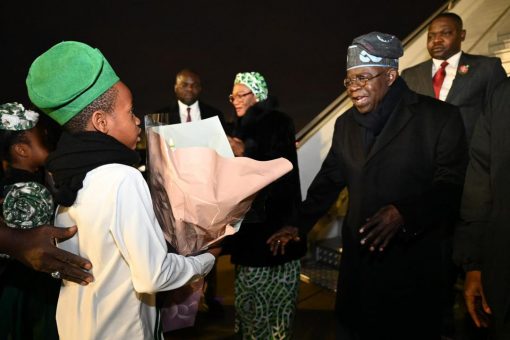A former Nigerian Head of State, General Yakubu Gowon, has said that a key reason for the collapse of the Aburi Accord, the last major attempt to prevent Nigeria’s civil war, was a fundamental disagreement with Chukwuemeka Odumegwu Ojukwu over who should control military forces in the country’s regions.
Speaking in an interview on Arise TV on Wednesday, Gowon explained that although both parties engaged in sincere dialogue during the January 1967 summit in Aburi, Ghana, the eastern region leader, Ojukwu, later pushed for a form of regional autonomy that the federal side could not accept.
Gowon said, “Although we said that the military would be zoned, you know, but the control… he wanted, you know, those zones to be commanded by the governor. Say you have a military zone in the north, it would be commanded by the governor of the military in the east, it would be commanded by, you know, by him.
“And, of course, we did not agree with that one”, Gowon said.
He further explained that the Federal delegation never viewed the Aburi meeting as a forum for constitutional restructuring or military devolution.
READ ALSO: Naira Rains As Asiaye Takes Emily As Wife [PHOTOS& VIDEO]
“We just went there as far as we are concerned to be able to meet as officers now, and then to agree to be able to get back home and resolve a problem at home. That was my understanding. But that is not his understanding”, he added.
Gowon also revealed that upon returning to Nigeria after the summit, he was ill and unable to immediately respond to the terms Ojukwu had publicly announced. This delay, he said, created space for misunderstanding and unilateral declarations.
“Unfortunately… I was having a serious attack of a kind of fever or whatever it is, and I could not make a decision”, the former Head of State said.
He accused Ojukwu of making unauthorised statements about the Accord without waiting for joint clarification.
READ ALSO: How Abacha Would Have Executed Obasanjo – Gowon
“Ojukwu was one who, when he came, he went and made… a statement about the Aburi Accord”, Gowon said.
To address the confusion, Gowon said the federal government convened a follow-up meeting in Benin, inviting all regional governors to agree on the path forward — but Ojukwu declined to attend.
“We had to organise that, you know, a meeting of all the governors. And he was invited to attend so that we can deal with the Accord. And we met at Nifo in Benin. And he did not turn up”, he said.
Gowon insisted that had Ojukwu attended the Benin meeting, the parties might have been able to avoid escalation.
READ ALSO:Biafra Civil War: You’re A Genocidist – IPOB Fires Back At Gowon
Gowon said the government was willing to work in the “spirit of Aburi,” but would never concede national military control to regional governors, nor accept the possibility of secession.
“The only thing that I added was that no region, you know, will, you know, can secede from the country.”
The collapse of the Aburi Accord is widely regarded as a decisive moment that led to the outbreak of the Nigerian Civil War in July 1967, a conflict that lasted until 1970 and claimed over a million lives.
Gowon’s remarks shed new light on the irreconcilable differences between both sides and reveal that the push for regional military control, rather than just political autonomy, was a red line for the federal government.
